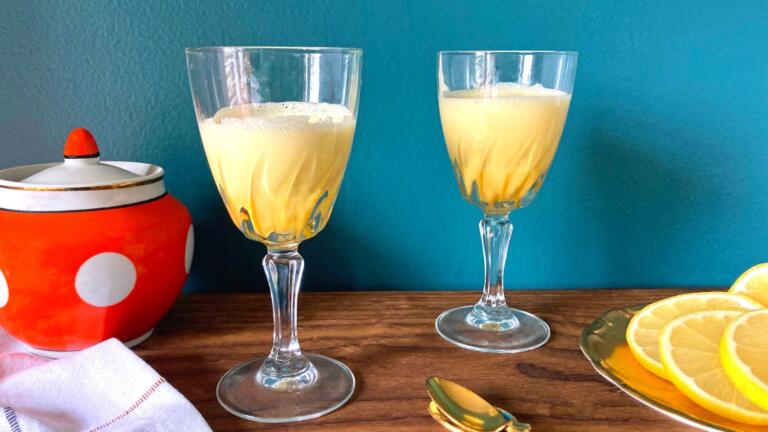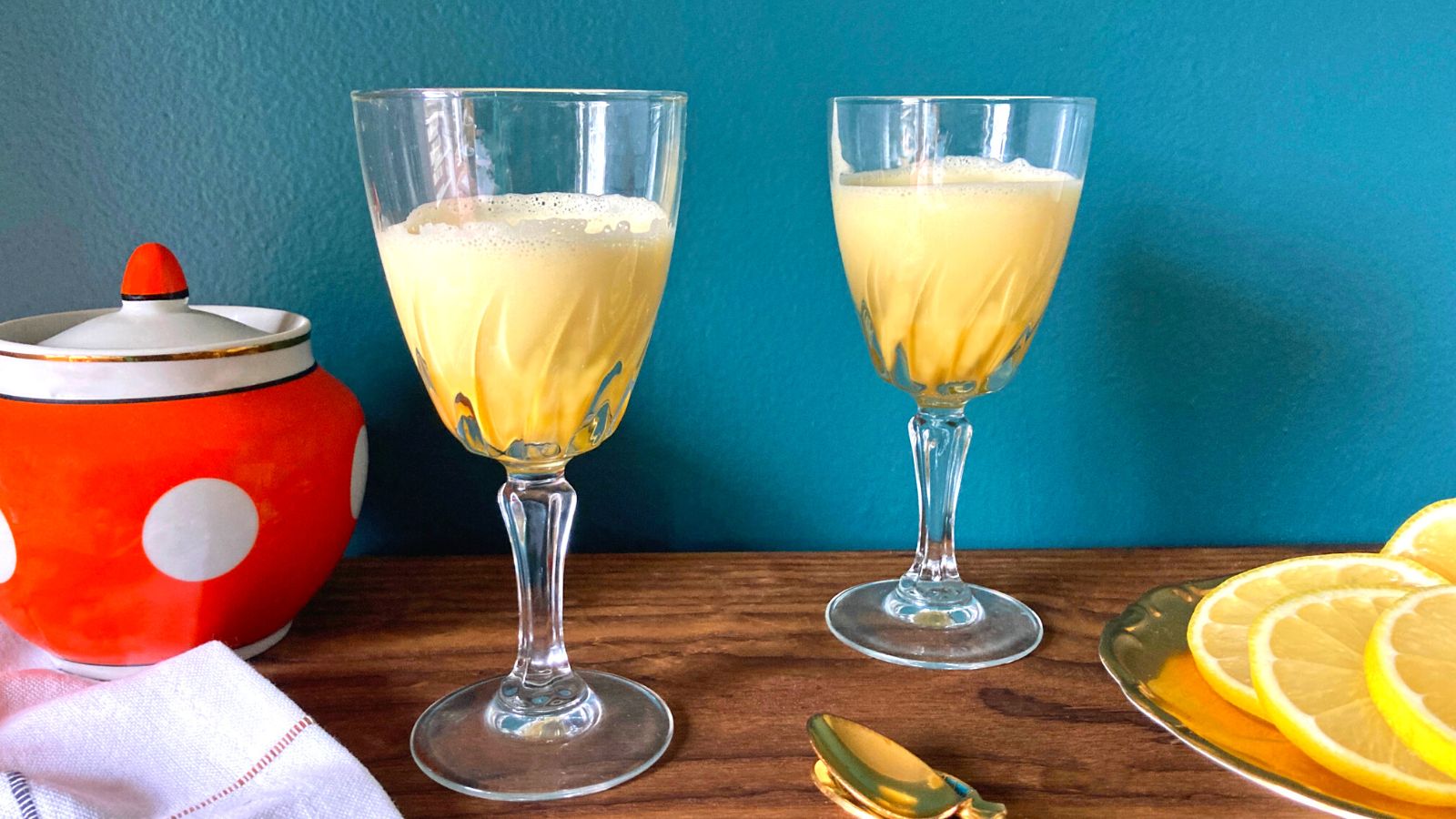Whenever I had the slightest hint of a sore throat, the remedy in our Ashkenazi Jewish home was gogol mogol (kogel mogel in Polish). Gogol mogol is a Yiddish word for a shtetl recipe that dates back to 17th-century Central Europe. It’s a simple, sweet treat made with egg yolks and sugar that’s similar to a non-alcoholic version of eggnog or zabaione.
Gogol mogol is considered both a dessert and a home remedy for colds and throat aches. There is some science behind its healing properties – an Israeli internal medicine doctor found that warm gogol mogol has an antibiotic effect that can speed up recovery for inflamed throats. Even Barbra Streisand’s mother allegedly believed in gogol mogol’s curative properties, and tried to strengthen her daughter’s vocal cords by serving her this classic concoction.
Gogol mogol’s origins are unknown, but it may have been inspired by the “Shulchan Aruch,” the 16th-century Separdic Jewish code of law, where it is written that one can soothe their voice on Shabbat with raw egg or sweet syrup. Over time, gogol mogol became popular across Poland and the former Soviet Union, particularly during interwar periods when sweets were scarce.
There are countless variations of gogol mogol, but it is traditionally made by beating raw egg yolks with sugar or honey until they become thick, light and frothy. My father taught me to use a ratio of one tablespoon for every egg yolk. Often, warm milk is streamed into the egg mixture to make it thinner and easier to consume. Popular additions include vanilla, lemon or cocoa powder; and gogol mogol can be served as an adult beverage with the inclusion of rum, brandy or cognac. Traditionally it’s served in drinking glasses, but like zabaione, it can also be served with fruit or a warm cake.
The Nosher celebrates the traditions and recipes that have brought Jews together for centuries. Donate today to keep The Nosher's stories and recipes accessible to all.
This comforting, cozy dessert is sure to warm you up in the dark of winter — and perhaps cure a bout of seasonal sickness, too.
Note about the use of raw eggs: Raw egg yolks may contain salmonella or other bacteria. While many dishes, like Caesar salad and aioli, are prepared with raw egg yolk, one can reduce the risk of illness in these recipes by using pasteurized eggs. You can also “cook” an egg without heat by adding an acid, like lemon juice, to your egg yolks.

Gogol Mogol
The old-school Ashkenazi cure for colds, sore throats and winter blues.
- Total Time: 10 minutes
- Yield: Serves 2
Ingredients
- 4 egg yolks
- ¼ cup sugar or honey
- ¼ cup hot milk
Optional additions:
- 2 shots rum or brandy
- 2 Tbsp lemon juice + 1 tsp zest
- 2 tsp cocoa powder
Instructions
- Using a handheld mixer with the whisk attachment, or using a whisk, beat the egg yolks and sugar together until lightened, thick and doubled in size — about 3-4 minutes with the mixer or 6-8 minutes by hand.
- Warm up the milk until just hot and then stream it into the egg mixture, whisking continuously. If including any of the optional additions, whisk them in at this point. Serve immediately.
Notes
Raw egg yolks may contain salmonella or other bacteria. While many dishes, like Caesar salad and aioli, are prepared with raw egg yolk, one can reduce the risk of illness in these recipes by using pasteurized eggs. You can also “cook” an egg without heat by adding an acid, like lemon juice, to your egg yolks.
- Prep Time: 5 minutes
- Cook Time: 5 minutes
- Category: Drink
- Method: Stovetop
- Cuisine: Ashkenazi




When I was a child my mother used to make what she called a “googaly moogaly” when we had colds. I thought it was something she made up. When I first found the recipe on the Nosher, I was so excited. I haven’t made your recipe yet, but if I ever get a cold I will definitely try it. Thanks so much for this.
I thought my Grandma made up the recipe too!
My grandparents always stayed at our house when we were sick to “help” my Mom out
She added brandy and honey to the milk and egg it always worked!!
Thank you for reminding me of this
Brings back wonderful memories
So delicious! This was standard therapeutic fare from my Polish Ashkenazy parents. And that great name made it not seem like medicine. So happy to see it online and in the pantheon of Jewish remedies!
I loved this drink when I was a kid! My mom made it with cold milk, egg, sugar and vanilla!